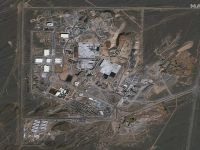Despite being in his late 20’s, the lines on Bilal Muhsin's face, a Yemeni worker, show years of hardship and worry. He makes a living from a daily job in the construction business. With his colleagues, he waits for many hours in the hot sun hoping someone will pass by to offer them work.
"In the past we used to get jobs easily because the construction companies and contracts had lots of projects, but now there is hardly any construction going on,” he said, wearing torn clothes smudged with paint stains.
Muhsin is one of the approximately 1 million Yemeni laborers who lost their only source of income over the past four years because of deterioration in the construction industry.
The sector, which represents 65 percent of the national economy and provides jobs for more than 3 million Yemenis, is suffering because of exchange rate fluctuation and inflation of raw materials prices.
Yet, according to the General Union for Yemeni Contractors, the over arching reason behind this slump is that the government did not pay its dues for construction projects.
“The government owes contractors more than $180 million for state construction projects. The government was late paying before, but the situation has become much worse because of recent events in the country,” said Saeed Abdulhaq the general secretary of the Union.
Mustafa Nasr, president of the Economic Media Center, estimates the losses in this sector to be $80 million since the political crisis began in 2011. He added that while the government worked frantically to cover the salaries of government employees during this period, it should have also paid attention to the construction sector, considering the millions of jobs it provides.
“Like with any crisis, the ones who are most affected are the poorest, who in this case, are the laborers who support their families with their daily wages,” Nasr said.
Instability in this industry has also driven over 60 percent of the contractors away. Currently, there are 20 contractors in jail for not being able to pay back money they borrowed from a bank in order to fund their projects.
“400 contractors were jailed at different times for different intervals in the last four years because of this,” said Abdulhaq.
He added that a lack of security, especially in remote areas has added to the problem. Machinery and equipment has been stolen by armed gangs from many construction sites.
An example of this is the Jahana road project in the Khawlan district in Sana’a governorate. Due to armed conflicts in the area in early 2011, warring tribes overtook many construction sites and seized everything on the premises, forcing contractors and workers to run for their lives.
In an attempt to negotiate solutions with the state, the Contractors’ Union held many meetings with the Ministry of General Works and Roads. Earlier this year, a joint committee was created by the Union, the Finance Ministry, the Tenders Authority and the General Works Ministry in order to look into the matter. However, according to the head of the Union, Yahya Al-Dhunain, nothing has happened.
“This is the last chance, if the ministry continues to ignore us, we will hold protests and even hold strikes that will stop government projects in the coming year,” Al-Dhunain warned. “The consensus government should fulfill the promises they made to the construction sector and not just give us lip service,” he said.
Wasted expertise
The million Yemeni construction laborers who are now unemployed, are not the only job losses the sector has face. Another issue is a highly skilled workforce that is migrating to other Gulf countries.
An engineer and member of the contractor's union, Amin Mahdi, says many high level engineers and technical workers are leaving Yemen in order to find better opportunities in Saudi Arabia and neighboring nations.
“The problem is that we could have easily accommodated this expertise in Yemen. We have over 1,300 Yemeni construction companies, and this sector could easily absorb the workers if it was given fair attention,” he said.
This is a sad turn of events for the construction industry which, according to Mahdi, used to be the envy of other sectors in Yemen because it alone represented almost two thirds of the national economy.
“But those days are gone. Now we are waiting for an emergency solution. Otherwise further losses will take place, and the ones who will pay dearly are the citizens,” he said







